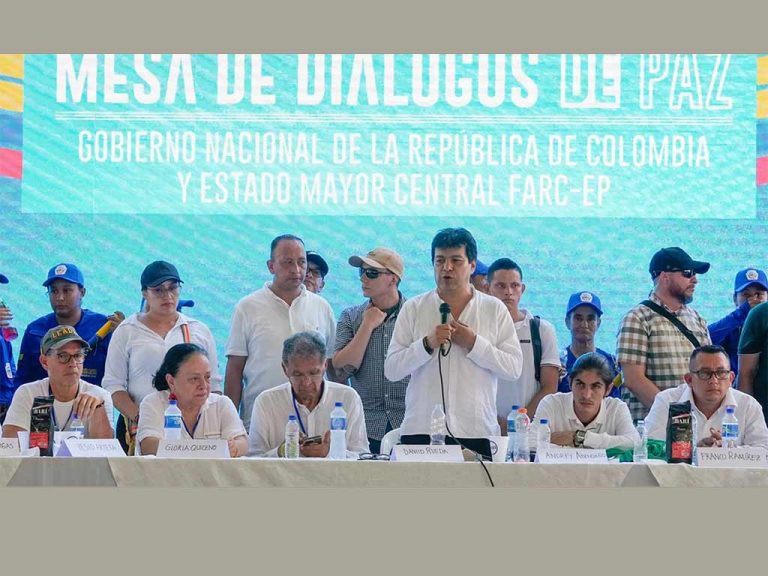At the conclusion of the third cycle of dialogues, which began last week, the parties agreed to strengthen the participation of social, peasant, indigenous, Afro, women and youth organizations, as well as victims and vulnerable people in the process.
According to a statement from the Presidency of Colombia, the representatives of each of these associations will work with the Peace Roundtable, in the construction of an agenda to guarantee the real and effective participation of the communities to debate issues of land, territory, environment, security, education and sustainable development.
They will also discuss local power, governance models, victims of social and armed conflict, economies considered illicit, ethnic and peasant territorialities, guarantees for the parties during and after the agreement, among others.
Development plans to improve the quality of life of communities will have a priority focus on the departments of Cauca, Caquetá, Arauca, Putumayo, Guaviare and Norte de Santander.
The head of the Government delegation in the process with the EMC, Camilo González, stated that a route will be drawn up with 22 local verification mechanisms which will protect the civilian population in territories affected by the conflict.
It was agreed to recognize premises for the participation of the different sectors of society to build a socio-environmental agenda for peace which “reduces environmental impacts related to social, environmental and armed conflicts in the territories”.
The Peace Roundtable will follow up on the commitments already defined in the agreements and protocols signed with strict respect for the norms of International Humanitarian Law and human rights.
jrr/llp/rgh/ifs










